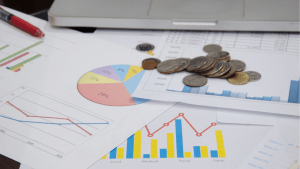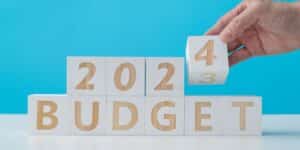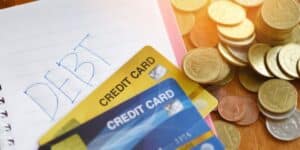Welcome to the world of economics for beginners books! If you’ve ever wondered how economies work and influence our daily lives, then this is the perfect starting point.
These beginner-friendly books will guide you through the essential concepts and theories in economics, making it easier to understand and apply. In this blog post, we’ll explore the top picks for those seeking a solid foundation in this exciting and ever-evolving field. So, let’s dive in and discover the best resources to help you master the basics of economics!
What is Economics?
Economics is the study of how societies allocate limited resources to satisfy their wants and needs. It is a social science that analyses how individuals, businesses, governments, and other organisations make decisions about how to use scarce resources.
Definition of Economics
The definition of economics is constantly evolving, and many economists have different interpretations of what economics entails. However, at its core, economics is the study of how individuals and societies allocate scarce resources to maximize their well-being.
According to the American Economic Association, economics is defined as “the study of how people use scarce resources to satisfy unlimited wants.” As such, it covers a broad range of topics, from the production and consumption of goods and services to the distribution of wealth and income.
Importance of Economics
Economics is an important field of study because it helps us understand how societies allocate resources, create wealth, and achieve economic growth. By studying economics, we can gain insights into why some countries are wealthy while others are poor and how different policies can impact economic outcomes.
One of the key contributions of economics is the concept of opportunity cost, which refers to the value of the next best alternative that must be forgone in order to pursue a certain action. This concept helps us make decisions about how to allocate scarce resources, whether it’s choosing between different job opportunities or deciding how much to spend on a particular product.
Economics also plays a critical role in informing public policy. By analyzing the costs and benefits of different policies, economists can help policymakers make more informed decisions about how to allocate resources, regulate industries, and promote economic growth.
Top Economics For Beginners Books
If you are looking to gain a better understanding of economics, there are many great books out there to help you get started. Whether you are a student, entrepreneur, or simply interested in the subject, these top economics for beginners books are a great place to start.

Economics in One Lesson by Henry Hazlitt
First published in 1946, Economics in One Lesson is a classic text that presents a clear and concise introduction to the principles of economics. The book explains how economic policies can have unintended consequences and how to evaluate those policies based on their long-term effects. This book is a must-read for anyone interested in economics, and it is an excellent resource for beginners.
The Armchair Economist by Steven E. Landsburg
The Armchair Economist is a fun and engaging introduction to economics that uses real-world examples to explain complex concepts. The book covers a range of topics, from supply and demand to game theory and public policy. This book is a great choice for beginners who want a more accessible introduction to economics.
Naked Economics by Charles Wheelan
Naked Economics is a straightforward and entertaining book that provides an overview of the fundamentals of economics. The book covers everything from macroeconomics to microeconomics, and it includes real-world examples to help readers understand how economic principles apply to everyday life. This book is an excellent choice for beginners who want a comprehensive introduction to economics.
Basic Economics by Thomas Sowell
Basic Economics is a comprehensive guide to the principles of economics, written by economist Thomas Sowell. The book covers a wide range of topics, from supply and demand to international trade and economic development. This book is an excellent choice for beginners who want a more in-depth understanding of economics.
The Cartoon Introduction to Economics by Grady Klein and Yoram Bauman
The Cartoon Introduction to Economics is a fun and engaging introduction to economics that uses cartoons and humor to explain complex concepts. The book covers a range of topics, including supply and demand, market equilibrium, and public goods. This book is an excellent choice for beginners who want a more lighthearted introduction to economics.
Factors to Consider When Choosing an Economics Book
When it comes to learning economics, choosing the right book can make all the difference. But with so many options available, it can be difficult to know where to start. Here are some factors to consider when selecting an economics book.
Author’s Credentials
One of the first things to consider when choosing an economics book is the author’s credentials. Look for books written by experts in the field, such as economists with PhDs or professors at top universities. You can also check the author’s bio to see if they have relevant work experience or have published articles in reputable academic journals.
Content Organization
The way a book is organized can impact how effectively you learn. Look for books with clear chapter headings, summaries, and review questions. These features can help you stay organized and retain information. Additionally, books with real-world examples and case studies can make the content more relatable and engaging.
Readability
Economics can be a complex subject, but that doesn’t mean the book you choose has to be difficult to read. Look for books with a readable writing style, clear explanations, and minimal jargon. If the book is too difficult to understand, you may become frustrated and lose interest in the subject.
Relevance to Current Events
Economics is a constantly evolving field, and it’s important to stay up-to-date on current events and trends. Look for books that cover recent developments in the field, such as the impact of technology on the economy or the effects of globalization. These books can provide valuable insights into the current economic climate and help you understand how the world works.
In conclusion, when choosing an economics book, it’s important to consider the author’s credentials, content organization, readability, and relevance to current events. By keeping these factors in mind, you can find a book that is both informative and engaging, and that will help you develop a deeper understanding of the world of economics.
Benefits of Reading Economics For Beginners Books
Whether you are a student or a professional, reading economics for beginners books can be a valuable use of your time. Here are some of the benefits that you may gain from reading these books:
Better Understanding of How the World Works
Economics is a social science that studies how people allocate scarce resources to satisfy their unlimited wants and needs. By reading economics for beginners books, you can gain a better understanding of how the world works, including how markets function, how government policies affect the economy, and how businesses make decisions.
For example, you may learn about the concept of supply and demand, which explains how prices are determined in a market economy. You may also learn about the role of inflation, which is the rate at which prices increase over time. Understanding these concepts can help you make informed decisions about your personal finances and investments.

Improved Decision Making
Reading economics for beginners books can also improve your decision-making skills. By learning about different economic models and theories, you can better evaluate the costs and benefits of different options. This can be particularly useful in the workplace, where you may need to make decisions that affect your company’s bottom line.
For example, you may learn about the concept of opportunity cost, which is the cost of choosing one option over another. By understanding this concept, you can make more informed decisions about how to allocate your time and resources.
Career Advancement
Finally, reading economics for beginners books can help you advance your career. Many employers value employees who have a strong understanding of economics, particularly in industries such as finance, consulting, and government.
By demonstrating your knowledge of economics, you may be able to stand out from other candidates when applying for jobs or seeking promotions. Additionally, you may be able to take on more challenging projects or responsibilities within your current role.
Overall, reading economics for beginners books can be a valuable investment in your personal and professional development. By gaining a better understanding of how the world works, improving your decision-making skills, and advancing your career, you can potentially achieve greater success in all aspects of your life. So why not pick up a book and start reading today?
Frequently Asked Questions About Economics Books for Beginners
1. Which economics book should I start with as a complete beginner?
For absolute beginners, we recommend starting with “Economics in One Lesson” by Henry Hazlitt or “Basic Economics” by Thomas Sowell. These books explain complex economic concepts in simple, accessible language without requiring prior knowledge.
2. Do I need mathematical skills to understand these economics books?
While basic math skills are helpful, the books recommended in this guide are chosen specifically for their accessibility. They focus on concepts and principles rather than complex mathematical formulas.
3. How long does it take to read and understand these economics books?
Most beginners can complete each book within 2-4 weeks of casual reading. However, it’s recommended to take notes and reflect on concepts as you read, rather than rushing through the material.
4. What’s the difference between theoretical and practical economics books?
Theoretical books focus on economic principles and concepts, while practical books apply these concepts to real-world situations. Our list includes both types to give you a well-rounded understanding.
5. Can these books help me understand current economic events?
Yes! Many of these books provide frameworks for understanding contemporary economic issues, making it easier to follow financial news and market trends.
6. Are these books suitable for self-study?
Absolutely! Each recommended book is written with self-learners in mind, featuring clear explanations, examples, and summary sections for better retention.
7. Should I read these books in a particular order?
While you can read them in any order, we’ve arranged our recommendations from most basic to more advanced concepts for optimal learning progression.
8. How current are these economics books?
While some books were written years ago, we’ve selected titles that focus on fundamental principles that remain relevant. The core economic concepts these books teach are timeless.
9. Will these books help with personal finance decisions?
Yes, understanding basic economic principles can significantly improve your personal financial decision-making, from budgeting to investing.
10. Are there any online resources that complement these books?
Yes, we recommend complementing your reading with online courses, economic news websites, and educational videos for a more comprehensive learning experience.
📚 Related Articles You’ll Love
- Master Your Money: The Ultimate Guide to Finance Control
- Comprehensive guide to money management and budgeting
- Perfect for applying economic principles to personal finances
- Reading time: 15 mins | Category: Financial Well-being
- 5 Financial Habits I Wish I Learned in My 20s
- Essential money lessons for young professionals
- Practical tips for building multiple income streams
- Reading time: 12 mins | Category: Financial Success
- Setting Effective Personal Objectives for Growth
- Learn to set and achieve financial independence goals
- Strategic approach to personal development
- Reading time: 10 mins | Category: Personal Growth ⭐
- Personal Development Books: 10 Life-Changing Reads
- Curated list of books for personal and financial growth
- Including economics and money management recommendations
- Reading time: 18 mins | Category: Personal Growth ⭐
- Mastering Personal Brand Building
- Build your professional presence
- Career development strategies for success
- Reading time: 14 mins | Category: Career Growth ✨
- 5 Essential Mindset Shifts for Aspiring Leaders
- Leadership development insights
- Success principles for career advancement
- Reading time: 11 mins | Category: Career Growth ✨
Conclusion
In conclusion, economics can be a daunting subject for beginners, but with the right resources, anyone can understand and appreciate its principles. The books mentioned in this article are great options for those who are interested in learning more about economics, but don’t know where to start. These books provide clear explanations and examples that make complex economic concepts accessible to everyone.
By reading these books, beginners can gain a solid foundation in economics, which can help them in their personal and professional lives. So, whether you’re a student, a business owner, or just someone who wants to understand the world better, consider picking up one of these economics for beginners books and start your journey to economic enlightenment today!
📚 Essential External Resources
- Learn More: Free Economics Course
- Khan Academy Economics
- Perfect for: Visual learners wanting free, structured learning
- Why it’s useful: Step-by-step video explanations of concepts from your books
- Stay Updated: Economic News
- Reuters Economics
- Perfect for: Following real-world applications
- Why it’s useful: Daily examples of economic principles in action
- Economic Data & Research
- Federal Reserve Economic Data (FRED)
- Perfect for: Finding economic statistics and trends
- Why it’s useful: Backs up book concepts with real data











